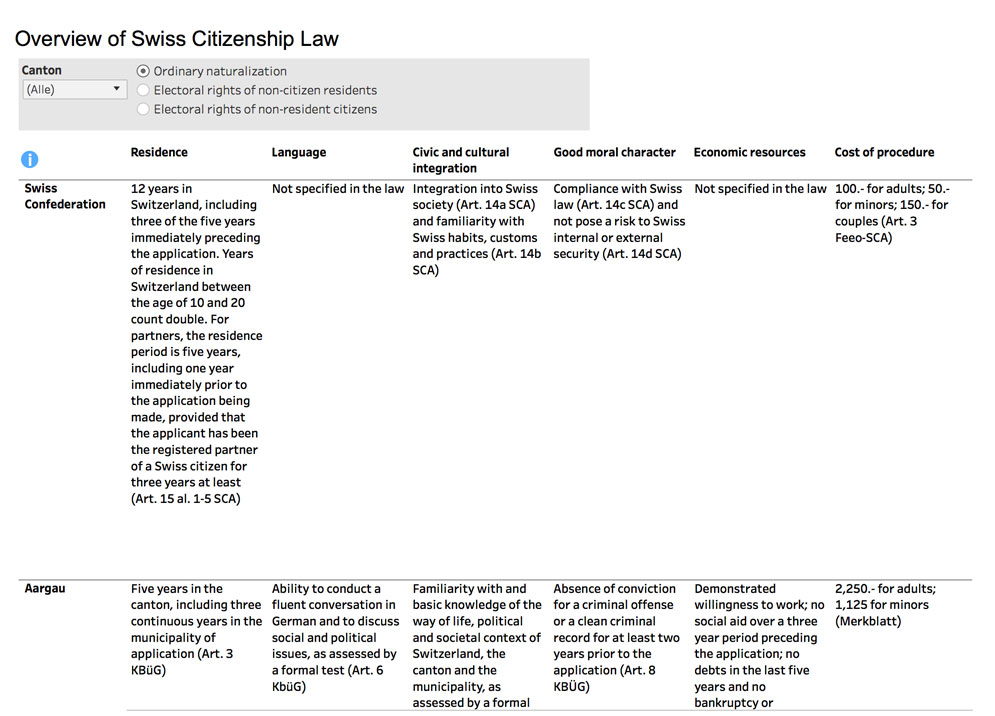Click on the image to access the interactive graphic.
The database on Citizenship Law in Switzerland summarizes the legal requirements that foreign residents must meet to be eligible for naturalization and to acquire the right to vote/stand as candidate in Switzerland’s 26 cantons as of 2017. It also describes the conditions under which Swiss expatriates may vote in their canton and municipality of origin, when applicable.
In regard to ordinary naturalization, the database highlights significant variations across cantons. For instance, residence requirements range from a minimum of two years in the cantons of Jura and Bern to six years in Glarus and Graubünden. Likewise, some cantons only require applicants to be “able to speak one of the official languages of the canton” (e.g. Fribourg), while others expect near fluency as documented by a formal written test (e.g. Schwyz).
As for access to electoral rights, the cantons of Neuchatel and Jura have the most inclusive legislation, allowing non-citizens to vote in cantonal and local elections and to stand as candidates in local elections. The Italian-speaking canton of Ticino is the most inclusive when it comes to granting the right to vote to Swiss citizens abroad. Indeed, it is the only canton where citizens residing abroad can vote in national, cantonal and local elections and can even stand as candidates in cantonal elections. On the opposite end of the spectrum, most German-speaking cantons limit the right to vote to Swiss citizens currently residing in the canton, thus excluding foreign residents as well as Swiss citizens abroad.
–
Note on methodology: The database summarizes the legal provisions as specified in the cantonal laws compiled in the Repository on Citizenship Law. It is organized around a comprehensive typology that distinguishes five conditions for ordinary naturalization (residence, language, civic and cultural integration, good moral character and economic resources) and two conditions for acquiring the right to vote/stand as a candidate in local/cantonal elections (citizenship and residence). For a comprehensive overview of the typology, please see our Explanatory Note.
Terms of use: The database is made available freely for non-commercial use by the general public. We ask that users of the database acknowledge it as the source when using the data in their publications. Please use the following citation: Arrighi, Jean-Thomas and Piccoli, Lorenzo. SWISSCIT: Index on Citizenship Law in Swiss cantons. Neuchâtel: nccr – on the move, 2018.
Last update: 10 January 2019


